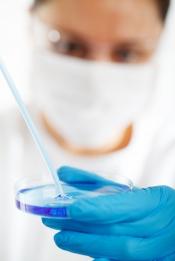Photo by Wonderlane on Unsplash
On a nearly still and moonlit night last week, some 75 people formed a circle on Asilomar State Beach around a sand pit ringed by seaweed. Four dancers swayed around the pit to the sound...
Aggregated News

18-months of deliberation on how to regulate research enhancing the transmissibility and virulence of viruses will end when the National Science Advisory Board for Biosecurity (NSABB) meets on 24 May 2016. The modified pathogens created through so-called ‘gain-of-function’ experiments could, if accidentally released from labs or deliberately misused, cause man-made pandemics. A new regulatory framework for gain-of-function research could set a significant precedent by creating a new standard for oversight in the life sciences.
Scientists and innovators assure us that biological technologies will ultimately be beneficial, but trust in biologists is currently in a precarious state. Last week it was revealed that a handful of labs operated by the Centers for Disease Control and Prevention (CDC) faced serious and repeated sanctions, and even secretly had their permits suspended for serious safety violations while working with bioterror pathogens. The CDC’s lab operations have been under scrutiny since 2014, after a series of safety incidents at the agency’s headquarters in Atlanta involving Ebola, anthrax and a deadly strain of bird flu. At the National Institutes of Health (NIH), 30-year old live smallpox...
The Center for Genetics and Society is fiscally sponsored by Tides Center, a 501(c)(3) non-profit organization.
Please visit www.tides.org/state-nonprofit-disclosures for additional information.
© 2023 Tides Center, through the Center for Genetics and Society. All rights reserved.
Privacy Policy. Terms of Use.
